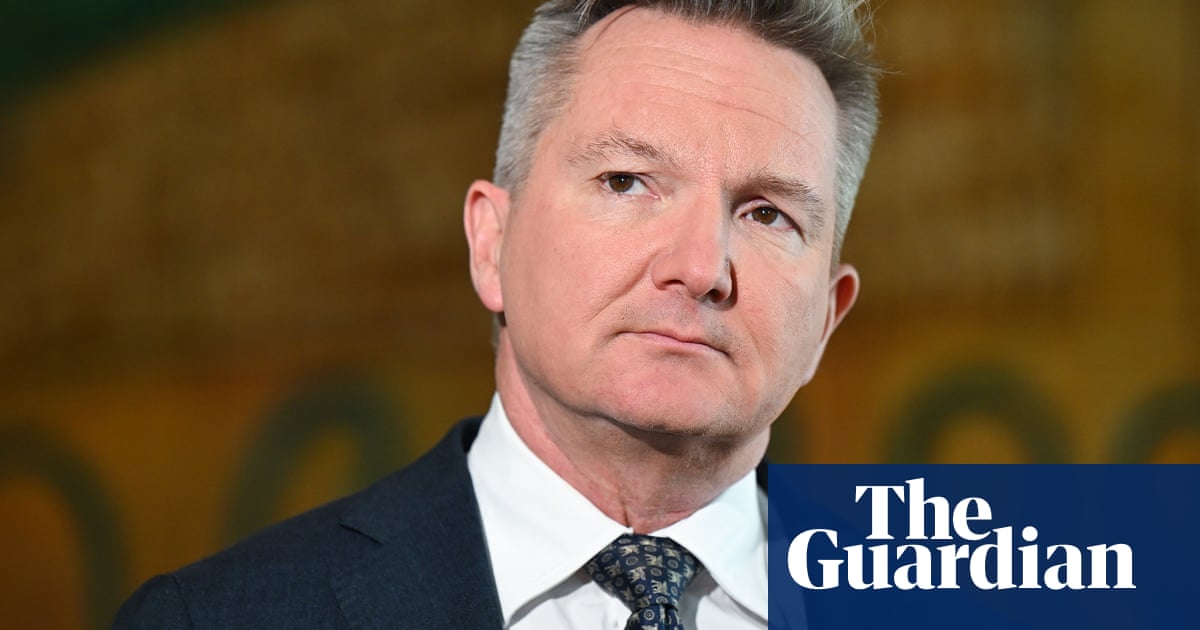Asweeping reviewof domestic gas market regulation will be conducted over the next six months as the federal government attempts to shore up supplies of a fossil fuel it argues is critical to energy affordability, security and the renewables transition.
The government has opened the door to establishing a scheme to reserve east coast gas for domestic use – an idea it criticised whenPeter Duttonpursued it at the federal election.
As the consumer watchdog issues fresh warnings about looming supply shortfalls, the climate change and energy minister,Chris Bowen, said the federal government would consider “well-calibrated opportunities to ensure that Australian users get access to Australian gas”.
Regulation of the gas market is complicated to say the least.
The federal government has three mechanisms designed to ensure sufficient supplies of gas for Australian households, business and industry while allowing gas companies to honour LNG export contracts.
TheAustralian Domestic Gas Security Mechanism– colloquially known as the “trigger” – is a Malcolm Turnbull-era tool that allows the commonwealth to restrict LNG exports if domestic shortfalls are forecast.
Then there’s thecode of conduct, which the Albanese government introduced in 2023 after Russia’s invasion of Ukraine sent global gas prices soaring. The code currently sets a $12-a-gigajoule price cap for domestic sales, while offering exemptions to companies that commit to extra supply.
Finally, the government has a “heads of agreement” with major LNG exporters to safeguard domestic supplies.
With reviews into two of those mechanisms due this year, the government has now decided to examine all three at once. And it’s leaving open the option of making minor tweaks or wholesale changes.
The idea of forcing companies to “reserve” gas for domestic users, rather than allowing the bulk of it to be sold on the lucrative export market, has long been touted as a straightforward solution to prevent local supply shortfalls.
The Australian Competition and Consumer Commission (ACCC)this week warnedof a “deteriorating outlook” for supplies for the east coast in 2025 and 2026, with shortfalls projected from 2028 unless new supply was brought into the market.
Groups such as the Australia Institute argue Australia would have more than enough gas if the largely foreign-owned producers weren’t exporting the vast majority of it.
Western Australiahas had a gas reservation since 2006, which requires offshore gas producers to set aside 15% of their gas for the domestic market.Queenslandhas its own version, which means gas developed through certain tenements can only be sold and used in Australia.
But no such regime is in place across the east coast, with the major political parties historically resistant to the market intervention.
That changed ahead of this year’s federal election withDutton promising to createan east coast gas reservation if the Coalition was successful.
Under Dutton’s plan, which the opposition is yet to either dump or re-adopt, a “gas security charge” would be used to incentivise LNG exporters to keep more supplies onshore.
The proposal sparked alarm inside the gas industry, and wasridiculed by expertsand dismissed as unnecessary by Labor, which maintained it had already secured substantially more gas through its code of conduct than Dutton’s reserve would.
But almost two months on from its thumping election win, Labor has signalled it is open to looking at some form of reservation scheme as part of the new review.
Sign up for Guardian Australia’s breaking news email
Asked on Monday if producers should prepare for a gas reserve, Bowen noted that 660 petajoules worth of supply had already been locked in via the code of conduct.
“Now, that’s not to say there isn’t more to do, and [the resources] minister [Madeleine] King and I will look at sensible, holistic, carefully designed, well-calibrated opportunities to ensure that Australian users get access to Australian gas. I think that’s reasonable. That’s a reasonable request by the Australian people and one that we will continue to work to deliver,” he said.
Bowen all but confirmed any reservation scheme would be limited to new projects, a key difference from Dutton’s proposal, which would have captured existing supplies except for those already under contract.
“One thing we won’t contemplate is ripping up existing contracts, creating sovereign risk, engaging in behaviours which would see Australia as an unreliable supplier. We won’t be doing that,” Bowen said.
A consultation paper published on Monday outlined potential options to regulate supply that ranged from “minimal change” to “fundamental reform”.
The “fundamental reform” option would involve a new framework that required all LNG exports to be approved subject to conditions, including relating to supply and price.
Mark Ogge, a principal adviser to the Australia Institute, said a review was unnecessary when the government already had “all the tools it needs to ensure Australia has a plentiful supply of gas”.
“The government should not allow any uncontracted gas to be exported unless the Australia market is plentifully supplied with low-cost gas,” he said. “This is a resource that belongs to Australians.”
The federal opposition said the review could not be used to avoid or stall immediate action to bring down prices or avert gas shortages, without offering solutions of its own.
The Greens said the review must crack down on profiteering by the gas giants.
“Massive gas corporations are exploiting loopholes to make massive profits off Australia’s gas,” the Greens environment spokesperson, Sarah Hanson-Young, said.
Australian Energy Producers, the peak body for gas companies, said the review was an “opportunity to future-proof the east coast gas market and ensure reliable and affordable gas supply for Australian households and manufacturers”.
Submissions to the review are open until 15 August.
A report will then be handed to Bowen and King to consider the next steps.
